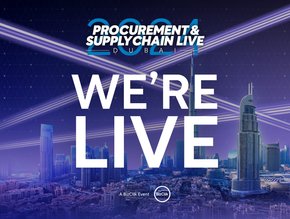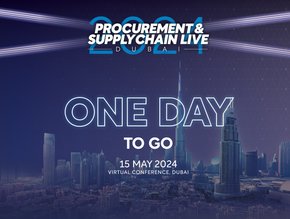SAP taking Gen AI: From hype-cycle to meaningful adoption

“With the advent of generative AI, the world finds itself at the beginning of a major cycle of technological innovation,” says SAP’s new Global Head of AI, Walter Sun, who joined the company as its AI chief after nearly two decades at Microsoft. “We are rapidly moving past the hype phase and lots of various pilots, into meaningful adoption of generative AI to deliver value – and that is exactly what we are delivering,” he adds.
Mission critical systems
Sun spent 18 years at Microsoft in a variety of roles, focusing on AI both in consumer and business scenarios. Among the projects he worked on were Bing Search, Bing Predicts, and Windows Media. Before moving to SAP, he was leading AI efforts around Microsoft’s business applications.
“The SAP opportunity was something I couldn’t pass up because SAP is synonymous with business applications,” he explains. “We run mission critical systems for organisations, everything from finance and supply chain, to HR, procurement, travel and expense, commerce, and the world’s largest business network.”
Sun joins SAP at a time when Gen-AI’s impact threatens to become exponential, and helping to shape this narrative is something Sun finds tremendously exciting.
“This quarter we are coming out with our regulatory change manager embedded with Joule, Joule, the generative AI assistant that revolutionises how you interact with SAP business systems,” says Sun “This will help customers better understand upcoming regulatory changes that impact SAP products and business processes.”
He adds: “Joule evaluates a vast number of regulatory updates, putting them into the context of a customer’s business and their SAP solutions. It also provides impact analysis across our products and solutions to help customers maintain compliance and run their day-to-day business without disruption.”
Competition in the procure-tech sector
Competition in the procurement technology space is fierce, as all the main players seek to implement increasingly smart AI solutions into their products to give their customers return on investment and a competitive advantage.
Sun argues that – as a provider with a long history of integrating AI into its business processes – it is nothing new to SAP. Pattern detection, image recognition, classification, regression analysis, procurement and decision making are all areas in which AI enhances SAP solutions.
“Generative AI is only as valuable as the data it draws from,” Sun reminds us. “Competitors who can combine business data with generative AI to provide strong context for the AI scenarios embedded in their solutions will have a significant advantage.”
This, he says, is where SAP is in a unique position to deliver value to its customers, because it can “leverage our robust data model to build highly relevant AI business scenarios”.
He adds: “For over 50 years business data has been moving through SAP systems, and today thousands of businesses allow us to use their data – with all proprietary information removed – to build AI business models we can leverage to develop business scenarios across the entire SAP portfolio.”
With every tech company seeking a competitive edge in the GenAI arms-race, Sun expects the strength of SAP’s data offering to be a key weapon in SAP’s AI arsenal.
“We can optimise our AI procurement scenarios by leveraging our robust business data model in ways competitors can’t,” he says. “We use large language-models to develop recommendations, then fine-tune them by tapping into our data model to deliver highly relevant outcomes for our customers.”
Trust, he stresses, is also a crucial factor when handling customer data.
“AI has the potential to unlock vast potential for society, businesses and governments,” says Sun, adding: “But it can also create economic, political and societal challenges, depending on how it is implemented and used.”
This is why, he says, SAP “is committed to running responsible AI built on leading ethics and data privacy standards”.
How Gen-AI can change procurement
Sun saysAI technology is changing the way supply chain and procurement teams function, releasing them from mundane and repetitive tasks. He feels AI’s impact on productivity has the potential to add “trillions of dollars in value to the global economy”.
Sun says: “AI will become the backbone of risk-resilient supply chain management. It will transform supply chains by enhancing organisations’ ability to sense, recognise and react to disruption as well as opportunities.
He adds: “Generative and predictive AI can help procurement and supply chain teams forecast disruptions, identify alternate sources of raw materials, detect errors in invoices, extract relevant data from requests for information and predict shipment and delivery times.”
He also feels it is having a “democratising effect on supply chain management”, going on to explain that, historically, working with AI required specialist skills, but that now Gen-AI assistants allow users to quiz the technology, and receive smart responses.
Challenges of implementing AI
The biggest challenge for organisations seeking to implement AI into their workflows is data quality; businesses need to combine Gen-AI with business-specific data to achieve valuable results.
“This data is notoriously complex and often sits in multiple systems,” warns Sun. “There is a high risk of losing valuable context when they are extracted and combined.”
He adds: “Companies that can master this will have a significant leg up on the competition.”
Asked what role SAP plays in resolving these and other AI challenges for its customers, Sun says a key role for the company is to prevent customers from losing enthusiasm for AI change projects.
“Customers can quickly become disillusioned if they don’t see tangible business gains from AI technology,” he warns. “With public large-language models released for consumers, nearly every business person understands the potential power of generative AI, but most realise that deriving useful insights is tough.”
He adds: This is often due to correct but irrelevant data, and to address this we simply apply business context to ensure the highest level of reliability in the results.”
Making AI easier for procurement customers
Sun has high hopes for the impact he can make in his new role, and it is his ambition to help set trends for the rest of the industry.
“I hope we can make it easier for customers to use AI so they can maximise the return on investment in their businesses,” he says.
******
Make sure you check out the latest edition of Procurement Magazine and also sign up to our global conference series - Procurement & Supply Chain 2024
******
Procurement Magazine is a BizClik brand







